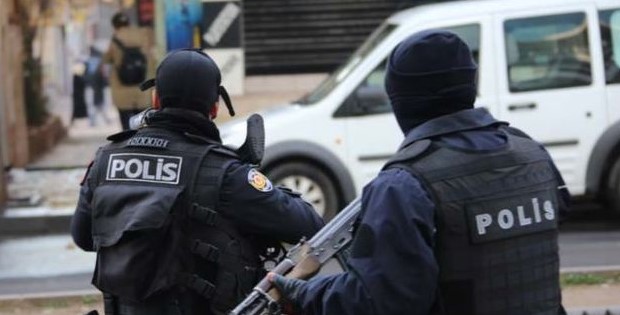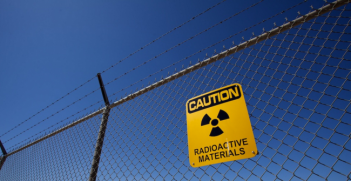The Istanbul Attack and Turkish Policy Toward Syria

Last month’s Istanbul airport attack is the price Turkey is paying for its former indulgence of Islamic State. That indulgence has now ended, more as a result of US pressure rather than because of a fundamental shift in Turkish thinking. Turkey continues to support organisations of similar ideological hue and its government policies continue to be part of the problem.
The terror attack at Ataturk Airport in Istanbul on 28 June was by no means an unpredictable development. Indeed, it was probably the inevitable next stage in the deterioration of relations between the government of Turkey and the Islamic State organisation—from collusion, via tolerant indifference, to antagonism and on to full scale confrontation.
How did that happen?
First of all, it’s important to remember the context in which IS appeared in Turkey. The Erdogan government in 2011–12 fell hard for the notion that the fall of Bashar al-Assad was imminent. At that moment, it appeared that all was falling into place for Turkey’s hopes of emerging as a dominant regional power. Regimes had fallen in Tunisia and Egypt, to be replaced by elected Islamist parties. In both those countries the parties in question had a Muslim Brotherhood-type orientation similar to that of the ruling Turkish AKP.
Syria appeared to be the next domino to fall. The uprising against the Assad regime was overwhelmingly dominated by members of Syria’s 60 per cent Sunni Muslim Arab majority. Militia groups with conservative Islamist outlooks similar to that of Turkey’s rulers proliferated in northern Syria.
In that heady atmosphere, Turkey effectively opened its border to anyone wishing to head south to fight the Assad regime, whose fall was assumed to be imminent. This author remembers crossing the Turkish–Syrian border for reporting purposes at that time. Precautions were minimal; Turkish attempts at monitoring cursory. The border was effectively open.
By the time IS appeared on the scene in early 2013, it had become clear that victory over Assad wasn’t going to be as quick as had been hoped. But still, the movement didn’t appear to be all that different from the other Islamist militias which clearly dominated the rebellion. To a great extent, that was because IS was genuinely not so very different.
Jabhat al-Nusra, the Syrian franchise of al-Qaeda, was already active on the ground and enjoying a relationship of tacit cooperation with the Turkish authorities. Another Salafi jihadi militia, Ahrar al Sham, enjoyed even closer relations with Ankara. IS was (and remains) a part of this ideological milieu.
Furthermore, the Islamist militias of northern Syria played a vital role against a new enemy for Turkey which arose in Syria in the course of 2012–13. This was the PYD and the YPG militia, the Syrian franchise of the militant Kurdish Workers Party, the PKK. Ankara’s main concern in that period wasn’t the proliferation of extremist jihadi militias, but rather the growing strength of a Kurdish nationalist force. From that point of view, IS was a barrier to the enemy, not an enemy itself.
The result of this was that Turkey maintained relations of tolerance and cooperation with IS. The organisation was permitted to develop smuggling networks for the transfer of volunteers across the border. To the great concern of Western officials, Gaziantep airport near the Syrian–Turkish border became a hub for foreign jihadis seeking to join IS. According to the testimony of former IS fighters, would-be members of the group would arrive there, take the short trip to the border town of Kilis, and then make the journey across.
A US Special Forces raid in May 2015 on the Syrian compound of Abu Sayyaf, a senior IS official of Tunisian origin, revealed concrete evidence of a formerly unsuspected level of cooperation between the movement and Turkey. Abu Sayyaf had been responsible for smuggling crude oil from Syria’s eastern oil fields, which came partly under IS control in the course of 2013.
Documents captured at his compound revealed the process by which crude oil was transported to the border with Turkey and transferred across, to be purchased by Turkish buyers. According to one Western official quoted in The Guardian:
‘There are hundreds of flash drives and documents that were seized there…They are being analysed at the moment, but the links are already so clear that they could end up having profound policy implications for the relationship between us and Ankara.’
Things began to shift as a result of the US declaration of war on IS following the latter’s invasion of Iraq in the summer of 2014. Pressure was placed on an initially reluctant Turkey to act against IS and to cooperate with Western efforts against it.
Ankara began to crack down on the border traffic. Around 500 suspected IS members were arrested in the first six months of 2015. Permission was given to US jets to fly out of Incirlik airport on raids against IS territory in Syria.
The predictable result was that the powerful jihadi network that Turkey had allowed to proliferate now decided to hit back. The first attack came at a Kurdish community center in the border town of Suruc, on 20 July 2015. This was followed by the attack on a Kurdish demonstration in Ankara.
IS then began to shell the town of Kilis in April of this year, in retaliation for Turkish artillery support to Syrian Islamist rebels fighting the group in the Azaz-Marea pocket.
The Istanbul bombing is the latest incident in Islamic State’s campaign of violence against its former tacit ally.
Turkey is now paying the price for its former indulgence of IS. That indulgence has now ended, though it’s worth noting that it did so as a result of US pressure, not a fundamental shift in Turkish thinking. That’s indicated by the fact that Turkey continues to support organisations of similar ideological hues to IS—such as Ahrar al Sham—and turns a blind eye to the activities of Jabhat al-Nusra.
Thus, even if Islamic State loses its territorial holdings and suffers continued defeats in the months ahead, this is unlikely to end the broader problem of the proliferation of jihadi terror groups, of which IS is ultimately a symptom. Turkish government policy remains part of the problem.
Jonathan Spyer is a senior research fellow at the Global Research in International Affairs (GLORIA) Center and a fellow at the Middle East Forum. This article originally appeared on ASPI’s The Strategist on 6 July and is republished with permission.





